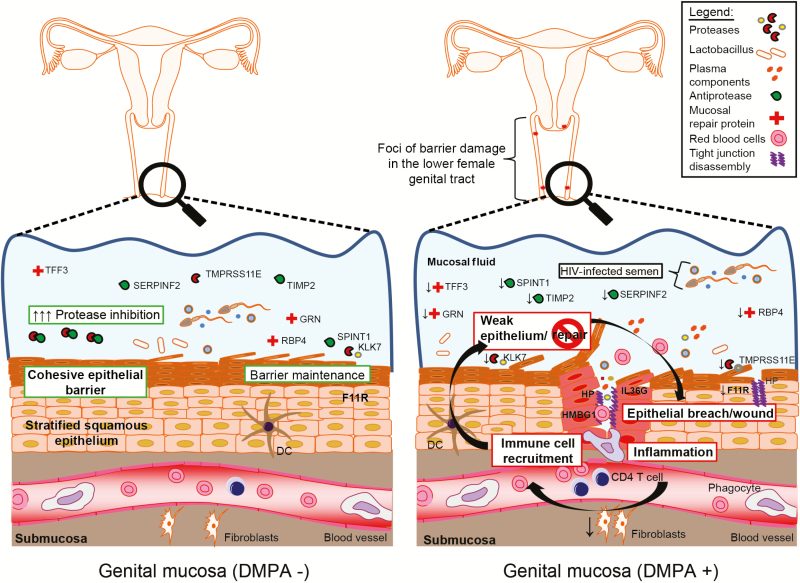Figure 3.
Model of molecular effects of depot medroxyprogesterone acetate (DMPA) use on the vagina mucosa. The use of DMPA is associated with a molecular signature, which suggests that the genital epithelium is weak and likely more prone to injury when faced with any kind of mechanical stress. Breach signals are evident, leading to an increase in the release of inflammatory molecules, which serve to attract immune cells to the breach site. Proteins involved in this inflammatory signalling cascade are increased in women using DMPA, whereas mucosal protection and repair proteins are reduced. This lack of mucosal protection and reparation may further exacerbate risk of human immunodeficiency virus (HIV) infection in DMPA users as the portal of entry that is generated is likely slow to heal. Further to this, DMPA users who practice vaginal drying appear to exacerbate this phenomenon, which likely contributes to an even great risk of HIV infection due to this compounding effect.

